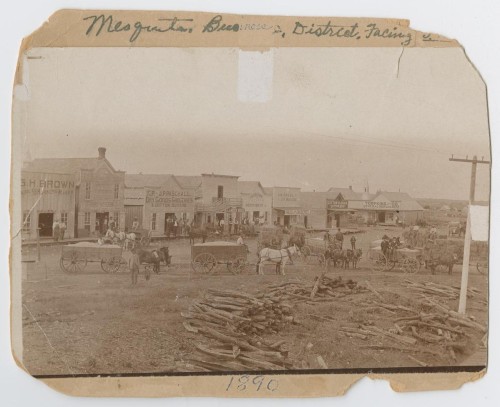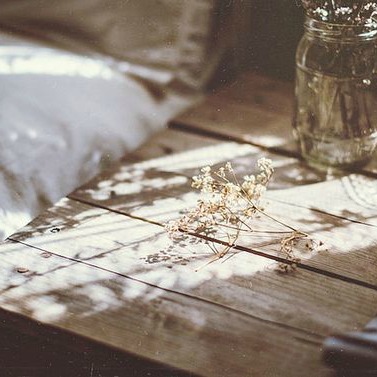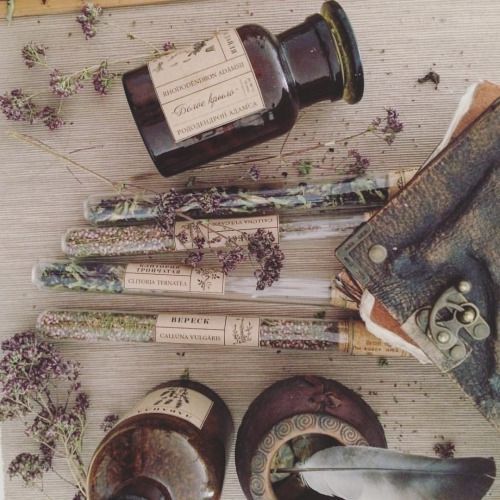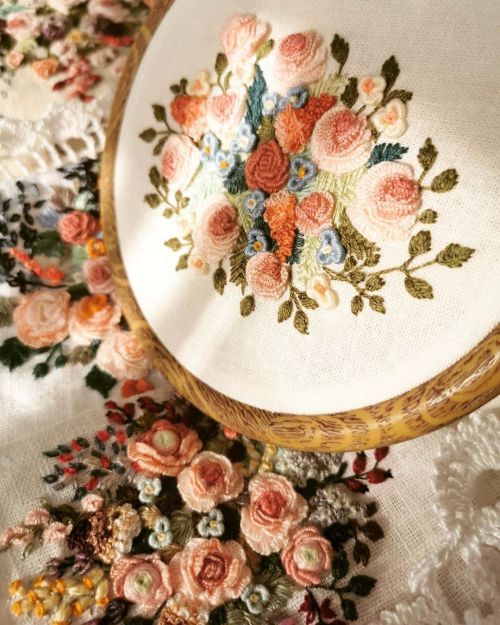Mesquite: The Tree Of Life Of The South West
Mesquite: The Tree of Life of the South West

"I could ask for no better monument over my grave than a good mesquite tree, its roots down deep like those of peace who belong to the soil, its hardy branches, leaves, and fruit holding memories of the soil..." J. Frank Dobie, Texas Writer
Overview
The name mesquite derives from the Hispansized word 'mizquitl'.
There are more than 40 species of mesquite trees found worldwide, at least 90 percent of which grow in Latin America, principally Argentina and Chile. Although mesquite also thrives in other arid regions such as those in Southwest North America, Africa, the Middle East, Tunisia, Algeria, India, Pakistan, Afghanistan, Burma, Hawaii, West Indies, Russia, Puerto Rico, and Australia.
The tree itself comes in a variety of sizes depending on rain fall. Locations with higher rain fall note mesquite trees ranging from 40-50ft in height with a spread of nearly 40 feet or more. The branches are sparsely covered in thin feathery leaves with 2inch thorns growing at the base of the leaf joints.
This blog will mostly focus on Latin America; specifically in the Southwest Us and Texas.
There are seven varieties that cover one-third of the state of Texas or 56 million of the 167.5 million acres of land from the Rio Grande to the Panhandle, across central and north Texas and into much of west texas. Of all the US states 76 percent of mesquite wood grows in Texas. Mesquite grows in all regions of the state except the deep East Piney Woods.
Out of the seven varieties, the post will mostly reference Prosopis glandulosa var. glandulosa a.k.a "Honey Mesquite".

Map of the American South West and Latin america showing the range of Mesquite tree growth.
Native Tribes: Resource and Myth

Description reads: Salt River Reservation, Pima Agency Arizona, two Maricopa men(sitting) and Mojave Man in full aboriginal dress. 1880
Mesquite was such an omnipresent and nutritious resource and a central part of life itself that many tribes such as the Walapai, Apache, Papago, and Maricopa honored mesquite within their language and mythology.
Mesquite beans were the food staples for many of the South West Native American tribes. Through out the United states they gathered millions of pounds annually. In cases of food shortages, mesquite beans were often the only food source.
Much of the plant material such as fiber, thorns, sap, and roots were used in the making of many goods. The fibers were used for making of textiles and baskets. The
The creation myth of the Maricopa states that the Maricopa, Pima, and Yavapai -after death of their maker- scattered over the land and gathered mesquite beans. An Apache myth recounts how the sun and moon consulted with one another and formed the mesquite tree then hung beans upon its branches. The death of the Coyote myth of the Pima tells of Mesquite surviving the Great Flood and of how the coyote ate so many beans that they swelled in his stomach.
The Mesquite was an extremely important resource and was used frequently as an amenity of trade between the Apache tribe and the Pima tribe. When food plants failed during time of drought the Pima would travel long expeditions to trade goods with the Apache for beans and bean flour. With it, the Pima made dough and cooked it as round cakes. Certain tribes such as Pima and Opata also fermented bean flour water creating a bean beer called Atole and has a mildly intoxicating quality.
The gum, or sap, of the tree was used as adhesive to mend broken pottery as well as dye clay before the heating process. The gum when mixed with mud was used in several tribes spiritual and courtship rituals.
Both leaves and gum of the Mesquite is known by the tribes to carry healing powers and medicinal properties.
The Yaqui community in particular honor mesquite as one of two plants to have supernatural powers beyond most other plants. However of the two, only Mesquite grows in the sacred territory of the Yaqui and is said to have powers to detect and vanquish witchcraft especially if the wood is cut into a shape of a cross. One Yaqui myth tells of a "talking stick" made from mesquite wood which foretold death to all people baptized as christian.
Anglo-Texan History

Image of Mesquite Texas, 1890 showing piles of mesquite branches and horse drawn wagons containing grain or beans.
Historians believed that the mesquite was orginally limited to extreme South Texas and spread north only after the Civil War when cattle drives became frequent. Cattle would eat mesquite beans when grass was not plentiful.
Early Texas settlers facored the mesquite wood because not only was it plentiful but it also resisted rotting. Before commercial barbed wire came to texas in the 1870s, ranchers built sturdy corrals from mesquite-log picket fences. Travelers also fashioned hubs for wagons, wagon spokes, and small boat ribs from mesquite.
During the civil war, when coffee was scarce, Texans made ersatz coffee from roasted and ground mesquite beans. Honey made from mesquite flowers was especially prized. In the absence of pins, settlers substituted mesquite thorns.
In the 1869 Dr. John E. Park of Sequin patented under the no. 51,407 on December 5 for the use of mesquite bark in tanning leather. In the article from 1870 Texas Almanac, he included information on the superiority of the use of Mesquite in tanning leather. For, mesquite was found to be richest in Tannic Acid (a substance used for tanning) and worked exceptionally faster than previous methods because the acid penetrated the hide faster. Fast enough to seldom lose hide to decomposition. This allowed for tanning to be done in summer months, a process usually done in winter.
Medicinal Uses
*Note: not a replacement for modern day regulated medications and treatments.*
Aztecs made a lotion from ground mesquite leaves to treat sore eyes.
The Yuma tribe treated venereal diseases with an infusion of leaves and sap.
Comanches chewed on leaves to relieve toothaches.
The Yaqui Tribe treated headaches with a poultice made from mashing leaves to a pulp, mixing with water, and binding the mixture to the forehead.
The light-amber gum or sap that oozed from mesauite bark was mixed with water and gargled to treat sore throats, or swallowed to treat diarrhea, aid in digestion, and help wounds heal.
The Yavapai rubbed a mixture of mud and mesquite gum into their hair to simultaneously dye it and treat lice.
Modern Uses
Although ranchers still try to annihilate mesquite due to injury of livestock and cowhands, a dedicated group of texans cant get enough of it. They are mostly artisans who value mesquite for its beauty, the ease with which it can be worked, and the high sheen of finished pieces. Some even prize its irregularities.
Mesquite has a swirling grain, radial cracks, mineral deposits in the bark, and often many insect holes. Mesquite is dimensionally stable: as most hardwoods dry they shrink more in one direction than they do the other while mesquite shrinks the same percentage in both directions. It has a surface hardness of 2,336 pounds per squared inch, equal to that of hickory and almost twice that of oak and maple; and a density of 45 pounds per foot greater than oak, maple, pecan, and hickory.
Modern Spiritual interpertations:
Harmonizing qualities
Accessing the willingness to cross the wasteland of "dark night of the soul" to find deep spiritual richness within yourself and others
Comfortably connecting with others from a place of compassion and warmth
Standing inside a circle of love
Self blessing
Forgiveness
Possible use for Mesquite in imbalances
Emotional remoteness
Aloofness
Allowing others to see a coolness that actually covers an inner warmth
Feeling as is there is a barren wasteland or spiritual desolation within self.
Feeling separated and remote from others or self.
Personal Suggestion on craft Use*
*Disclaimer: subject to error and not a replacement for actual medications; allergy notice: mesquite is part of the legume family. Research trees and plants in area before ingesting random plants. Watch out for use of pesticides in public places. I do Not recommend diy fermentation. I do not support appropriating native tribes' traditions and rites unless explicitly permitted to by said tribe, do NOT trespass on Sacred Lands for resources it may be possible to purchase sacred mesquite from the tribes. Do Not vandalize sacred grounds or public trees. BE RESPECTFUL.*
Mesquite is tasty. Use wood for rich Smokey flavor on barbequed meats and vegtables.
Make tea from leaves
The beans are said to taste sweet and contain 30 percent sugar trace. Eat beans raw, roasted, dried, or ground into a flour.
Use water diluted sap to treat rashes. (Unless allergic.)
Use diluted sap in hair as you would oils.
Burn leaves and wood to smoke cleanse.
Hang mesquite cross to avert hexes or harmful craft.
I recommend buying from South Western Tribes and other mesquite artisans for bobbles and other wooden figures. Otherwise, source your mesquite in an earth friendly manner by sustainable means and only take what you need.
Information Sources:
"The Magnificent Mesquite" book by Ken E. Rogers
Texasalmanac.com
Desert-alchemy.com
Local Texans
Picture Sources: Google and pinterest
More Posts from Spellbound-savvie and Others
Shadow Work Journaling Prompts #6
Good Morning Tumblr Family! I hope you are having a great start to the weekend. I wanted to drop another segment of Journal Prompts for you to work on during the week. If you are just now tuning in, no worries, take your time with the previous prompts and use the upcoming prompts when you are ready to.
These prompts are more reflecting where your anger is stemming from. It could be family, friends, past experiences, etc. Lets take a look!
- What makes you really angry? Why? What gets under your skin or bothers you completely to your core? Do you know why this is?
- Did your parents provide you with everything you needed? Did they provide you with emotional support? Did they validate your feelings? Did they provide a safe place for you?
- Do you hold grudges against others that could be let go? What is your motive for holding onto them? These grudges could be anyone in your life that you feel that you are holding a grudge with. (Family, old friends, new friends, coworkers, etc) What was the incident(s) that caused you to feel this way? Are they unhealthy?
- What are your bad habits? Why don’t you break them? We all have at least one bad habit, it could be spending too much time on social media, not taking care of yourself, chewing on your fingernails, etc. How can you break these habits? Why or why don’t you?
I hope you are all doing well during this Shadow Work Journey. This is a reminder that it’s okay to cry and be angry during this process. Make sure you journal why you are upset and how you can work through those emotions. Your journey is YOUR JOURNEY. As always, if you are having a difficult time please reach out for support. I am not a licensed professional however my inbox is open for questions and/or support.
You got this!! Keep going!!

𝕾𝖆𝖇𝖇𝖆𝖙𝖘

{Art by Julia Nikita}
The sabbats are holidays celebrated throughout the year on solstices, equinoxes, and the midpoints between them. These sabbats form the Wheel of the year.
There is a controversy surrounding the dates of these holidays, as people celebrate them all over the earth, not only in the northen hemisphere but in the southern too.
One viewpoint is that the Sabbats should be celebrated as they were originally created to be… in other words, Samhain is October 31st, regardless of where you live. In the Southern Hemisphere, even though you are just gearing up to summer on October 31st, this perspective says that you celebrate the cleansing and releasing, the honouring of the dead just as you would if you lived in the Northern Hemisphere. The other viewpoint (the one I personally agree with) is that you should celebrate when you feel like the season corresponds with the holiday, in other words, your craft, your rules. So if you live in the southern hemisphere, you have the choice.
I’ll be writing the dates for each holiday starting with the northen hemisphere and then the dates that many people celebrate them in the southern hemisphere
🌲𝐘𝐔𝐋𝐄
{December 21st//June 21st}
Yule focuses on rebirth and renewal as the sun makes its way back to the earth. It’s all about new beginnings, reflection and embracing warmth. Much like Christmas, many celebrate with a feast, gift giving, being cosy and appreciating the good.
↟Nature: cedar, frankincense, myrrh, mistletoe, pine, birch, ivy.
↟Foods//flavours: ginger, cloves, cinnamon, nutmeg, wintergreen, apple, dried fruit.
↟Stones: citrine, ruby, garnet, alexandrite, green tourmaline.
↟Activities: decorate your altar with incense associated with Yule, burn ash wood for prosperity, bake using Yule flavours like ginger or cinnamon, make wreathes to hang around the house, spend time with loved ones.
🕯️𝐈𝐌𝐁𝐎𝐋𝐂
{February 1st//August 1st}
Imbolc focuses on celebrating the nature that is preparing to grow and renewal, also known as “candlemas” and the “Feast of Pan”.
↟Nature: basil, blackberry, heather, celandine, iris, wisteria, vanilla, bay, yellow and white flowers.
↟Foods//flavours: pumpkin and sunflower seeds, poppy seeds, peppers, onions, spices, and herbal teas.
↟Stones: amethyst, bloodstone, garnet, ruby, onyx.
↟Activities: decorate with candles and sun decorations, go hiking, have a bonfire, bake foods with poppy seeds, and burn any leftover winter herbs.
🌼𝐎𝐒𝐓𝐀𝐑𝐀
{March 21st//September 21st}
Ostara focuses on manifesting creativity and love. As the days become longer, energy becomes stronger.
↟Nature: ash, alder, daffodil, honeysuckle, narcissus, primrose, violet, jasmine.
↟Foods//flavours: olives, maple syrup, honey, edible flowers, chocolate, pine nuts, nettle or lavender tea, local fruits and vegetables.
↟Stones: amethyst, rose quartz, moonstone.
↟Activities: gardening and planting seeds, bake breads with olives or honey for example, start new projects, talk to plants, do some painting, decorate with wildflowers.
🌰𝐁𝐄𝐋𝐓𝐀𝐍𝐄
{May 1st//November 1st}
Beltane focuses on fertility, love and abundance. Also known as “may day”, on this sabbat many celebrate with dancing, bonfires and many high energy activities, including enjoying themselves sexually with a partner or even conceiving children.
↟Nature: frankincense, lilac, ivy, marigold, woods, rose, thyme, mint, yarrow.
↟Foods//flavours: oats, leafy greens, fruits, breads, honey.
↟Stones: malachite, amber, fire opal, red jasper.
↟Activities: dance, decorate with florals and symbols of the sea, go to the beach, go hiking, have a bonfire, feast on fruits, vegetables and grains, laugh and let your hair down. And if you’re trying to conceive or simply would like to have sex, Beltane is a wonderful time to do so.
🦋𝐋𝐈𝐓𝐇𝐀
{June 21st//December 21st}
Litha focuses on growth and celebrating the longest day of the year and the sun, before the shorter days begin.
↟Nature: fern, yarrow, sage, rose, oak, mugwort, lavender, chamomile, myrrh, pine.
↟Foods//flavours: herbed bread, honey, sunflower seeds, iced herbal tea, lemon, vanilla.
↟Stones: lapis lazuli, amethyst, malachite, tiger’s eye.
↟Activities: make or buy a sun catcher, surround yourself with warm tones, watch the sunrise and sunset, make sun water, spend time outdoors, make use of herbs.
🌾𝐋𝐀𝐌𝐌𝐀𝐒//𝐋𝐔𝐆𝐇𝐍𝐀𝐒𝐀𝐃𝐇
{August 2nd//February 2nd}
Lammas, or lughnasadh focuses on celebrating the first of the three harvesting sabbats and taking time to really feel the positivity in different aspects of life.
↟Nature: cornstalks, heather, acacia flowers, hollyhock, oak leaves, wheat, myrtle, spices.
↟Food//flavours: grainy bread, corn, potatoes, nuts, blackberries, wine.
↟Stones: amber, agate, citrine, clear quartz, obsidian, tiger’s eye.
↟Activities: bake bread, make corn dolls, visit a sunflower field, spend time in nature, acknowledged what you are grateful for, journal.
🍁𝐌𝐀𝐁𝐎𝐍
{September 21st//March 21st}
Mabon focuses on honouring the change of the seasons, balance and peace.
↟Nature: sage, pine, marigold, thistle, acorns, milkweed, oak leaves, myrrh.
↟Food//flavours: cinnamon, nuts, beans, dark fruits, pies, soup, butterscotch.
↟Stones: citrine, carnelian, clear quartz, sapphire, yellow agate.
↟Activities: collect pine cones, donate food and old clothes, meditate, dry herbs, spend time with loved ones, speak to the nature around you.
🎃𝐒𝐀𝐌𝐇𝐀𝐈𝐍
{October 31st-November 1st//April 30th-May 1st}
Samhain focuses on celebrating life, and honouring those who are no longer with us.
↟Nature: heather, sage, pumpkins, straw, flax, patchouli, myrrh.
↟Foods//flavours: apples, cider, pumpkin, pies, soups, stews, potatoes, ginger.
↟Stones: amber, black obsidian, fossils, onyx, sandstone, bloodstones.
↟Activities: honour the deceased, spend time with family, make a hearty comforting meal, make or buy a scarecrow, spend time practicing divination.
𝐓𝐡𝐢𝐧𝐠𝐬 𝐲𝐨𝐮 𝐜𝐚𝐧 𝐝𝐨 𝐞𝐯𝐞𝐫𝐲 𝐬𝐚𝐛𝐛𝐚𝐭
↟Do a tarot reading relevant to that sabbat.
↟Spend time in the moonlight, charging your crystals and tarot cards, as well as meditating.
↟Bake something using at least one traditional food of that sabbat to share with others.
↟Cleanse your living space and any of your magickal items.
↟Write down how you’re feeling and how you’d like to feel in the weeks to come.
Hard Reset Cleansing Routine
Cleansing for when everything has gone completely wrong, and you need to Restore Factory Settings.

If you’re anything like me, I can feel horrible months after something bad has happened. My entire body, house and environment can feel completely infested with awful energy and it clogs up my life. So, for when you feel like you’re dying a little, this is my Hard Reset Cleansing Routine to completely reboot everything.
Keep reading

Make a wish









Airmed (or Airmid) - Celtic goddess of healing herbs
requested by anon





.




(via)










Witchcraft 102 Masterpost
So. You’ve covered the basics. You know what every kind of ritual tool does, you understand all the terms that seemed alien to you before and you think you’re finally starting to get a feel for this witchcraft thing. You’re not a baby witch anymore, but… where to from here? Making the move from beginner witch to intermediate witch is a lot more difficult than it seems, purely because resources aimed at intermediate witchcraft are few and far between. But there’s a good reason for that.

There are general rules and ideas that can be applied across all of witchcraft. There’s so much to learn from other witches, but your greatest teacher will always be yourself. There is a reason witchcraft is so customisable to the individual: some things just work better for certain people. Not to mention pretty much every magick practice in history was developed by witches using their intuition! Because of this, it’s hard to create resources that tell somehow how to go from a beginner to an intermediate. However, they do exist! You’ll just find that most of them will act as prompts or scaffolds. They’ll instruct you on how to figure things out for yourself.
This next stage of your craft will involve a lot of introspection, and a lot of trusting your gut. It’s the reason you learnt all that baby witch stuff in the first place. This is where most of the personal growth happens. It can be scary, but it’ll also be magical. It’ll be a while before you actually qualify as an ‘intermediate witch’, and there’s no shame in that. The process of moving from beginner to intermediate is one that can take years, simply because witchcraft is such a deep and complex art. I myself definitely wouldn’t identify as a baby witch, but I’m still a beginner in many aspects despite having been a witch for years.
Without further ado, I present to you witchcraft 102.
GENERAL
The Problem with Sharing Advanced Magic
Using Tumblr as a Resource
How to Stop Being a Beginner Witch
How to Deepen Your Craft
Developing Your Craft Beyond Tumblr
Creating a Spiritual Calendar
SOAP Journaling: a Devotional Framework
Devotional Journal (for deity worship)
Questions for a Deeper Spiritual Practice
ORGANISATION
When reading through information, I recommend taking notes on the content, as well as your thoughts on it. Do you notice any connections to other texts or ideas? Do you have any questions you’d like to follow up? This will not only help you remember the information, but encourage you to look at it critically and see the bigger picture. Here is an example of my personal note-taking scaffold which includes some of the notes I took a while ago. I adapted it from the Cornell notes system based on my personal needs.
At TechnoCoven, a recent online witchcraft convention, there was an hour-long panel about planning in witchcraft called Spirit Papers. Here is a link to the recording. It goes over different organisation systems, notebooks, etc.
Why you should cite sources
How to cite sources
What is an annotated bibliography?
I would highly recommend setting aside a specific time every day to study witchcraft. This way, you will be improving your craft every day. Even if you only set aside half an hour, you will be doing three and a half hours of study a week. An hour a day totals to seven hours a week. If you can’t find a specific time every day, then find a specific time every week. 6pm-8pm on Tuesday and Saturday, for example, or reserve all of Sunday afternoon. This structure obviously isn’t compulsory, but with it you will advance at a much quicker pace and probably find your craft more fulfilling.
You should definitely have a grimoire already, but if you don’t, get one. It can be on paper or online, if you’d prefer. OneNote, Evernote, Microsoft Word and Google Docs are all viable digital options. You probably have lots of loose information lying around, whether its physical, in note form or on your Tumblr blog. Categorise it and order it. Then go through it. Document the important and useful parts in your grimoire.
READING
Elemental Magick in Science
Elemental Systems
The Darker Elements
History of Magick Part 1
History of Magick Part 2
History of Magick Part 3
History of Magick Part 4
How Location and History Affect Spiritual Practices
Botanical Medicine for Women’s Health (ebook)
TAROT
Stop Learning Tarot Like Flash Cards
Learning the Major Arcana
Learning the Court Cards
Reading Tarot Cards Vertically
Reading Reversed Cards
How to Take Notes on a (New) Tarot Deck
Understanding Yourself Tarot Mega-Spread
Conceptions of the Self Through Spreads
Shadow February Divination Challenge
Daily Tarot Journal Printable
SHADOW WORK
Introduction to Shadow Work
6 Phrases for Shadow Work
Safety Planning (good to have one of these if you’re doing shadow work and have a mental illness)
Shadow Working with Stuck Points
Shadow Work with Hillbillyoracle (pt. 1)
Shadow Work with Hillbillyoracle (pt. 2)
Hillbillyoracle’s Personal Shadow Work Framework
RESEARCH
Good Things to Research When You Don’t Know What to Research
Areas of Research for the Intermediate Witch
Masterlist of Journals, Articles & Books on Folklore, Mythology and the Occult
Index of Old Grimoires
Working with Plants
Tips on How to Google Correspondences
The Cornell University Library Witchcraft Collection
Sacred Text Archive
Bocastle Museum of Witchcraft
Occult Library
Hermetics Library
Project Gutenberg Paganism Bookshelf
Legal Free Ebooks Masterpost
Good Pagan & Wiccan Publishers
How to Get Use Out of Older Texts
Finding Experienced Witches
PRACTICE
What to Do When You Fall out of Practice
Making Your Own Correspondences
Pendulum Dowsing for Correspondences
2019 Grimoire Challenge (a year of grimoire prompts)
Stones for Advanced Practitioners
On Tools and Psychodrama
A Way to Astral Project
Energy Alignment Identification
Magic in the Body
Spell Circles
Irish Concept of “On the Breath”
Sky Catch
Verbal Sigils
PODCASTS
Tea With the Gods
The Hillbilly Oracle
Hex Positive
The History of Witchcraft
The Empowered Modern Witches Show
Academy of Affluence
TESTIMONIALS
A Samhain Fairytale
Foundations of Diywitchery’s Practice
Godphoning
Devotional activities
GET OFF TUMBLR (AKA GET SOME VARIETY IN YOUR SOURCES) I’ve got some examples listed here but there are definitely more out there!
Bree NicGarran’s Blog
Luna Luna Magazine (Blog)
Witchy Words (Blog)
Mumble & Things (Blog)
Down the Forest Path (Blog)
The Travelling Witch (Blog)
Prisoner’s Apothecary (Blog)
Harmony Nice (Youtube)
BOOK RECOMMENDATIONS
6 Books for Advancing Your Craft
Hellenic Polytheism Books
Walker Between Worlds by Robert Kirk (I haven’t read it so I can’t vouch for its quality but I’ve heard its a valuable resources for those wanting to learn about the fae)
The Study of Witchcraft: A Guidebook to Advanced Wicca by Deborah Lipp (I will link to my book review here; this book is essentially a study guide)
Evolution of Goddess by Emma Mildon (book recommendation) (especially good if you are looking to find a deity but are unsure of where to start)
The Occult, Witchcraft & Magic: An Illustrated History by Christopher Dell (a fantastic starting place for looking into occult history)
-
 magick-mistress reblogged this · 9 months ago
magick-mistress reblogged this · 9 months ago -
 diianavee liked this · 10 months ago
diianavee liked this · 10 months ago -
 grandkingdomcomputer liked this · 1 year ago
grandkingdomcomputer liked this · 1 year ago -
 sycilia liked this · 1 year ago
sycilia liked this · 1 year ago -
 comraderaccoon liked this · 1 year ago
comraderaccoon liked this · 1 year ago -
 hauntingsofafuturespast liked this · 1 year ago
hauntingsofafuturespast liked this · 1 year ago -
 despotikon liked this · 1 year ago
despotikon liked this · 1 year ago -
 witcheshollow liked this · 1 year ago
witcheshollow liked this · 1 year ago -
 youre-a-witch reblogged this · 2 years ago
youre-a-witch reblogged this · 2 years ago -
 amireallythatcrazy liked this · 2 years ago
amireallythatcrazy liked this · 2 years ago -
 something-writing liked this · 2 years ago
something-writing liked this · 2 years ago -
 high-witchery liked this · 3 years ago
high-witchery liked this · 3 years ago -
 sadoi liked this · 3 years ago
sadoi liked this · 3 years ago -
 sunnycrayons liked this · 3 years ago
sunnycrayons liked this · 3 years ago -
 spellbound-savvie reblogged this · 3 years ago
spellbound-savvie reblogged this · 3 years ago -
 spellbound-savvie liked this · 3 years ago
spellbound-savvie liked this · 3 years ago -
 spellbound-savvie reblogged this · 3 years ago
spellbound-savvie reblogged this · 3 years ago -
 ageoldnew reblogged this · 3 years ago
ageoldnew reblogged this · 3 years ago -
 the-evidence liked this · 4 years ago
the-evidence liked this · 4 years ago -
 clickbankmedicines liked this · 4 years ago
clickbankmedicines liked this · 4 years ago -
 shock-out-of-luck liked this · 4 years ago
shock-out-of-luck liked this · 4 years ago -
 inafightwithgod liked this · 4 years ago
inafightwithgod liked this · 4 years ago -
 falut liked this · 4 years ago
falut liked this · 4 years ago -
 theearmorer reblogged this · 4 years ago
theearmorer reblogged this · 4 years ago -
 theearmorer liked this · 4 years ago
theearmorer liked this · 4 years ago -
 hail-is-just-dippin-dots liked this · 4 years ago
hail-is-just-dippin-dots liked this · 4 years ago -
 onebrightflash liked this · 4 years ago
onebrightflash liked this · 4 years ago -
 alienlamp reblogged this · 4 years ago
alienlamp reblogged this · 4 years ago -
 alienlamp liked this · 4 years ago
alienlamp liked this · 4 years ago -
 nice-things-are-here reblogged this · 4 years ago
nice-things-are-here reblogged this · 4 years ago -
 mossfvcker liked this · 4 years ago
mossfvcker liked this · 4 years ago -
 t-dx liked this · 4 years ago
t-dx liked this · 4 years ago -
 reddogstarsystem1111 reblogged this · 4 years ago
reddogstarsystem1111 reblogged this · 4 years ago -
 jambea liked this · 4 years ago
jambea liked this · 4 years ago -
 rustytouchet liked this · 4 years ago
rustytouchet liked this · 4 years ago -
 rustytouchet reblogged this · 4 years ago
rustytouchet reblogged this · 4 years ago -
 redroadwanderer liked this · 4 years ago
redroadwanderer liked this · 4 years ago -
 rosemintcans liked this · 4 years ago
rosemintcans liked this · 4 years ago -
 madreabeja liked this · 4 years ago
madreabeja liked this · 4 years ago -
 d4rknessqueen liked this · 4 years ago
d4rknessqueen liked this · 4 years ago -
 urbandruidstuff reblogged this · 4 years ago
urbandruidstuff reblogged this · 4 years ago

she/hereclectic witchcrafttaurus sun / aquarius moon / aquarius risingmother of two
456 posts